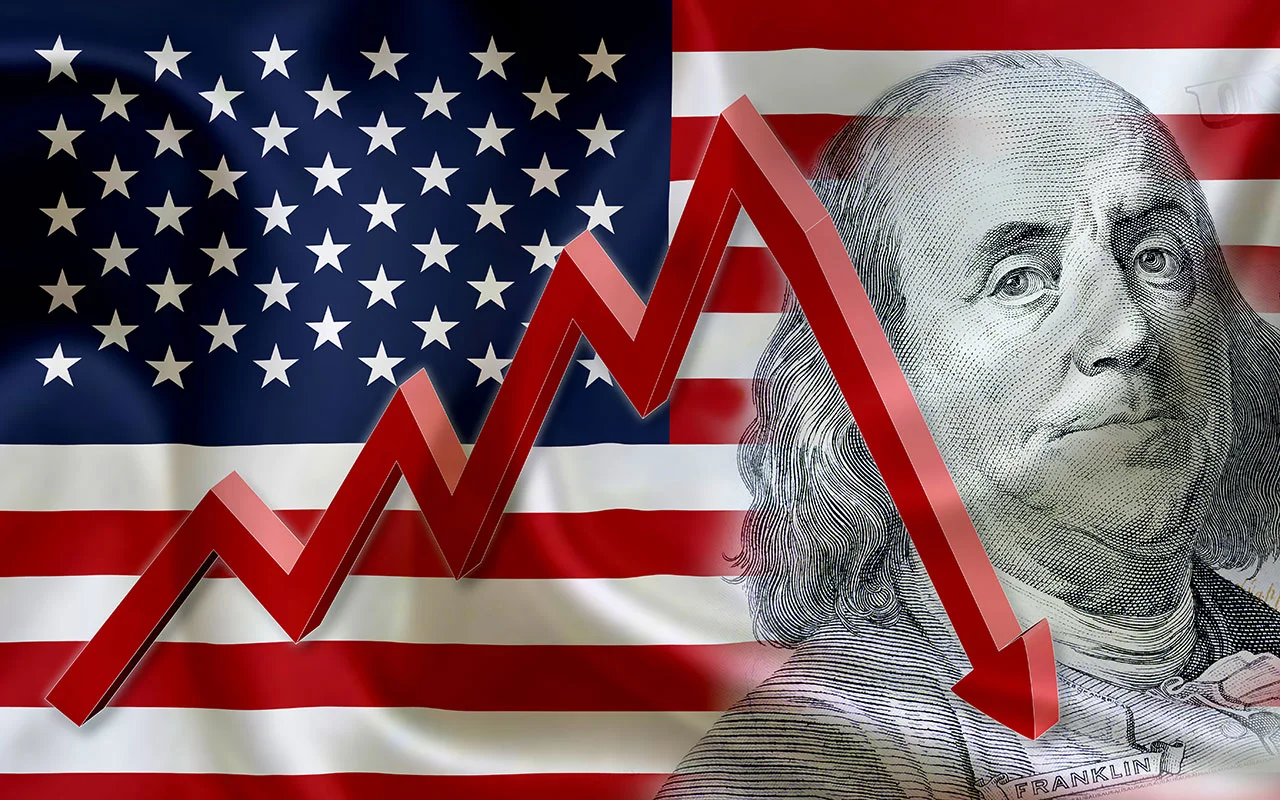Rising Debt Spurs Recession Fears: Key Indicators to Watch
30.07.2024 12:30 2 min. read Alexander Stefanov
The U.S. debt level surpassed $35 trillion on July 29, amplifying worries about the economy and a possible recession.
A crucial indicator to monitor is the Sahm Rule, which triggers a recession alert if the unemployment rate climbs 0.5 percentage points above its lowest point in the past year. Currently at 0.43%, it is nearing this critical threshold. If unemployment reaches 4.2% in the upcoming jobs report on August 2, the rule will signal a potential recession.
The anticipated July jobs report, set for release on Friday, predicts an addition of 200,000 jobs and a slight drop in unemployment from 4.1% to 4%. Average hourly wages are expected to rise by 0.2%, reflecting a 3.7% increase year-over-year. Seasonal hiring, particularly in leisure and hospitality, is likely to influence these figures.
Adjustments for July are historically challenging, and any deviations from the forecast could point to stronger hiring trends.
As Wall Street awaits a possible interest rate cut from Federal Reserve Chairman Jerome Powell in September, some experts believe earlier action might be necessary. Former New York Fed President Bill Dudley, who initially supported prolonged high rates, now advocates for an immediate rate cut.
He cites a slowdown in consumer spending, increased car repossessions, and rising loan delinquencies as reasons for his shift. Dudley warns that delaying rate cuts could exacerbate the risk of a recession.
-
1
Billionaire Slams Meme Stock Hype and Sounds Alarm on U.S. Fiscal Health
15.06.2025 18:00 2 min. read -
2
Robert Kiyosaki Predicts 2025 “Super-Crash,” Urges Hoarding Gold, Silver, and Bitcoin
23.06.2025 13:31 2 min. read -
3
Nassim Taleb Says Global Trust Is Shifting from the Dollar to Gold
22.06.2025 17:00 1 min. read -
4
Billionaire Investor Sees Dollar Crash If Key Support Breaks
18.06.2025 15:00 1 min. read -
5
Geopolitical Shockwaves Hit Ethereum Hard While Bitcoin Stays Resilient
22.06.2025 16:21 1 min. read
Robert Kiyosaki Predicts When The Price of Silver Will Explode
Robert Kiyosaki, author of Rich Dad Poor Dad, has issued a bold prediction on silver, calling it the “best asymmetric buy” currently available.
U.S. PCE Inflation Rises for First Time Since February, Fed Rate Cut Likely Delayed
Fresh data on Personal Consumption Expenditures (PCE) — the Federal Reserve’s preferred inflation gauge — shows inflation ticked higher in May, potentially delaying the long-awaited Fed rate cut into September or later.
Trump Targets Powell as Fed Holds Rates: Who Could Replace Him?
Federal Reserve Chair Jerome Powell is once again under fire, this time facing renewed criticism from Donald Trump over the Fed’s decision to hold interest rates steady in June.
U.S. National Debt Surge Could Trigger a Major Crisis, Says Ray Dalio
Billionaire investor Ray Dalio has sounded the alarm over America’s soaring national debt, warning of a looming economic crisis if no action is taken.
-
1
Billionaire Slams Meme Stock Hype and Sounds Alarm on U.S. Fiscal Health
15.06.2025 18:00 2 min. read -
2
Robert Kiyosaki Predicts 2025 “Super-Crash,” Urges Hoarding Gold, Silver, and Bitcoin
23.06.2025 13:31 2 min. read -
3
Nassim Taleb Says Global Trust Is Shifting from the Dollar to Gold
22.06.2025 17:00 1 min. read -
4
Billionaire Investor Sees Dollar Crash If Key Support Breaks
18.06.2025 15:00 1 min. read -
5
Geopolitical Shockwaves Hit Ethereum Hard While Bitcoin Stays Resilient
22.06.2025 16:21 1 min. read


